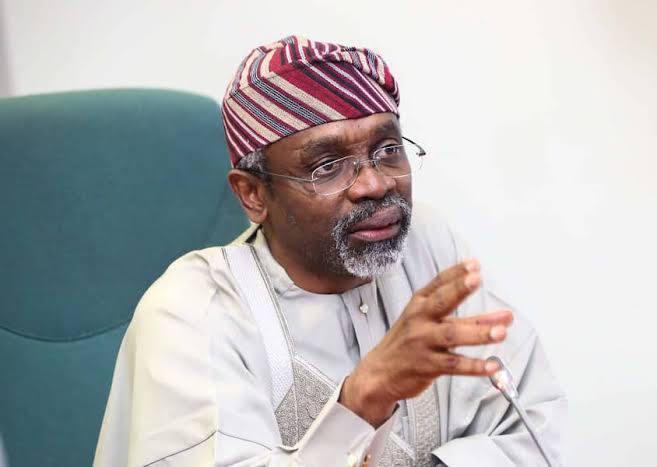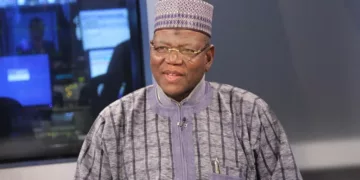As I tried to wrap up my thought on the controversy between the National Assembly and the Conference of Speakers of State Assemblies on the ongoing amendment to the 1999 Constitution (as amended), news filtered in that a federal court in Washington DC, sentenced a former adviser to the immediate-past US president, Donald Trump, Steve Bannon, for contempt of Congress after defying a subpoena from the House Committee investigating the January 6, 2021 Capitol attack.
This forced me to change today’s topic of my piece, and again, enjoin our lawmakers to do more in strengthening the only institution that represents democracy.
A federal jury, Carl Nichols, found Bannon guilty in July of contempt for refusing to appear for the panel’s deposition and produce documents. Bannon, 68, was convicted in July on two counts – for refusing to provide either testimony or documents to a committee probing the January 6, 2021 riot at the US Capitol. In addition to the jail time, Bannon must also pay a fine of $6,500.
The sentence reminded of several threats from the two chambers of Nigeria’s National Assembly that amounted to nothing and plethora of resolutions ignored, mostly by agencies of government. The National Assembly should see through this. The contempt against our legislature is one too many. Notwithstanding the powers of the National Assembly to summon anyone as enshrined in the constitution, the law is silent on what happens to whoever disobey a summon of the parliament.
A step to correct the loophole in the Constitution will be to amend Section 89 (1d) to ensure that contempt against the National Assembly such as failure to obey summon is punished by conviction including fine if necessary. This ought to be included in the ongoing amendment to the constitution.
Section 89 reads “(1) For the purposes of any investigation under section 88 of this Constitutional and subject to the provisions thereof, the Senate or the House of Representatives or a committee appointed in accordance with section 62 of this Constitution shall have power to –
(a) procure all such evidence, written or oral, direct or circumstantial, as it may think necessary or desirable, and examine all persons as witnesses whose evidence may be material or relevant to the subject matter;
(b) require such evidence to be given on oath;
(c) summon any person in Nigeria to give evidence at any place or produce any document or other thing in his possession or under his control, and examine him as a witness and require him to produce any document or other thing in his possession or under his control, subject to all just exceptions; and
(d) issue a warrant to compel the attendance of any person who, after having been summoned to attend, fails, refuses or neglects to do so and does not excuse such failure, refusal or neglect to the satisfaction of the House or the committee in question, and order him to pay all costs which may have been occasioned in compelling his attendance or by reason of his failure, refusal or neglect to obey the summons, and also to impose such fine as may be prescribed for any such failure, refused or neglect; and any fine so imposed shall be recoverable in the same manner as a fine imposed by a court of law.”
Instructively, Section 89 (2) provides that, “A summons or warrant issued under this section may be served or executed by any member of the Nigeria Police Force or by any person authorised in that behalf by the President of the Senate or the Speaker of the House of Representatives, as the case may require.”
This technically returns the power back to the executive, since the National Assembly does not control the Nigerian Police Force or any security agency. Therefore, an alteration to section 89(1d) to prescribe punishment may be essential.
Although, the National Assembly has proposed a bill to specifically empower the parliament to summon the President and State Governors to answer questions bothering on security or any other issue on which the National and State Houses of Assembly have powers to make laws.
The bill seeks alteration to Section 67 of the Principal Act by inserting after subsection (3), a new subsection (4).
The proposed subsection (4) provides: “Nothing in this section shall preclude the National Assembly from summoning the President of the Federal Republic of Nigeria to attend a joint session of the National Assembly to answer questions on national security or any issue whatsoever, over which the National Assembly has powers to make laws”.
The bill further seeks to alter Section 108 of the Principal Act to insert a new subsection (4) to provide: “Nothing in this section shall preclude the House of Assembly of the State from summoning the Governor of the State to attend a sitting of the House of Assembly to answer questions on securoty or on any issue whatsoever, over which the House of Assembly has powers to male laws.”
While this is a step in the right direction, an alteration to section 89(1d) to prescribe specific sanction beyond the fine will reinforce the seriousness that should be attached to the parliament.





